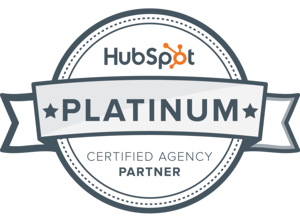These days, businesses have to be much savvier about how they market themselves online. In the past, a website was often enough to attract customers and generate leads. Today, businesses need to do much more to ensure their online visibility. One of the most important things they can do is create local citations.
 What Are Local Citations?
What Are Local Citations?
Local citations are mentions of your business on other websites, with your NAP (Name, Address, and Phone number) details included. They’re an important part of local SEO (search engine optimization), which is the process of making sure your business appears as high as possible in search engine results for relevant keywords.
Why Are Local Citations Important?
Local citations are important for both SEO and local search. They help search engines find and index your business, which can lead to increased visibility in search results. Citations can also help improve your click-through rate from search results.
Are Local Citations a Ranking Factor?
Local citations are often used in SEO as a ranking factor for local search engine results. They help improve your local SEO by giving search engines more signals that your business is legitimate. They also help customers find your business more easily.
How To Check Your Company’s Local Citations
A simple way to check your company's local citations is to do a Google search for your business name and address. If you see your company listed on other websites, then you likely have local citations. However, if you don't see your company listed on any other websites, then you may not have any local citations.
Different Types of Local Citations
These are the two major types of local citations:
Structured Citations
Structured citations are those that appear on well-known online directories such as Yelp, Foursquare, and Yellow Pages. When you include your NAP (Name, Address, Phone number) information on these platforms, you create a structured citation.
Unstructured Citations
On the other hand, unstructured citations are local citations that don't require a specific format. These are usually found on directories and review sites. You can also find them on blog and forum posts, as well as on social media profiles.
 How To Update or Build Your Local Citations
How To Update or Build Your Local Citations
Start with the major directories like Google Business Profile, Yelp, and Bing Places for Business. These are the directories that will give you the most visibility.
In order for your business to rank highly in search results, you need to make sure your business is listed in all the relevant directories with a consistent NAP (Name, Address, Phone number).
Be sure to use keyword-rich descriptions of your business. This will help you attract more attention from potential customers who are searching for businesses like yours.
If you find that your business is already listed in some directories, be sure to claim the listing. This will allow you to update the information and make sure it's accurate.
Popular Sites for Local Citations
Not all citations are created equal. The most important citations come from high-quality and well-established websites.
One of the most important citation sources, Google Business Profile, is a free listing that allows businesses to manage their information — including hours, contact details, and location — on the Google Maps listing. On the other hand, Yelp is one of the most popular consumer review sites. Creating a free business listing on this platform can help improve your visibility and attract new customers.
Lastly, the Yellow Pages has been around for decades and is still one of the most popular directories for businesses. A listing on Yellow Pages can help improve your local SEO.
Can We Help?
If you haven't started using local citations to improve your SEO and visibility, now’s the time. By claiming your business listing on popular directories and building up a strong portfolio of reviews, you can make sure potential customers find you easily online. If you don’t feel confident enough to begin this alone, get in touch with us at Connection Model. We have the expertise to help you!
Written By: David Carpenter



